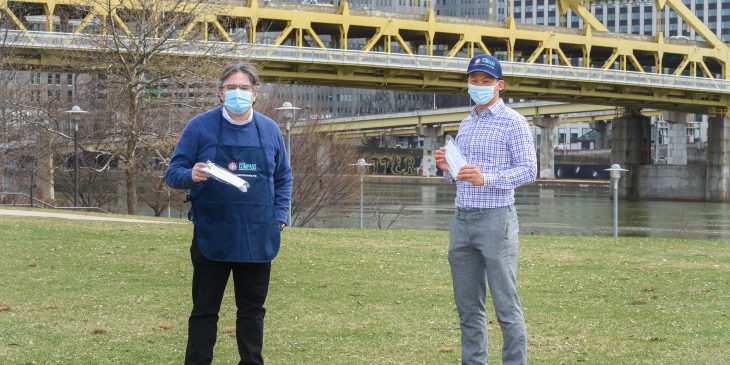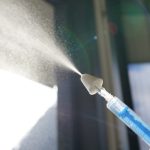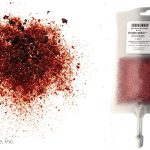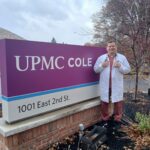“Excuse me, are you willing to answer a few survey questions about your experience with COVID-19? Will you provide a blood sample and a nasal swab to test for the coronavirus?”
If you’re taking a walk in the park or entering a grocery store, you might hear these questions from researchers at the University of Pittsburgh, who are seeking participants for a COVID-19 study that will shed light on the impact of this disease in the community.
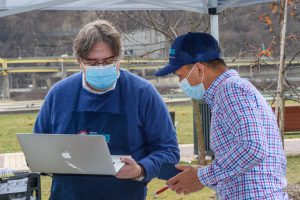
Marques and Ho
About the Study
Pitt is one of 15 sites nationwide involved in the COMPASS study that will survey residents around the Pittsburgh area to learn who has antibodies against SARS-CoV-2 and who is carrying the virus at the time of the test.
“This data collection is essential for us to understand what percentage of our local population has been infected – and is currently infected,” said Dr. Ken S. Ho, an infectious disease specialist at Pitt and principal investigator on the study. “Because the study involves conducting research in community spaces, a lot of thought has been put into community engagement. The overarching goal is to capture a cross-section of the community that represents our diverse populations and translates to data that will help us understand the epidemic better at the national and the local level.”
Joining Ho is co-principal investigator Dr. Ernesto T. A. Marques, Jr., an associate professor of infectious diseases and microbiology at Pitt’s Graduate School of Public Health.
They hope to recruit 4,000 people for this study: 500 from nursing homes and assisted living facilities, 500 from doctors’ offices and other outpatient facilities and 3,000 from the community. Recruitment will end in July or earlier if researchers meet their goal before then.
Finding Participants
How will they find participants? Ho and Marques have selected 20 locations in and around Pittsburgh where they will approach people – like a city park, a grocery store parking lot or outside of a doctor’s office. Then they’ll use a computer program to tell them when and where to go to ask people to participate. This approach helps ensure they’ll sample a diverse population. People living in the Pittsburgh area who are at least 2 months old are eligible to participate.
“We cannot announce the locations we’ll be recruiting – we don’t want a line of people. We want to identify people who are casually moving around the area,” said Marques.
Requirements for Participants
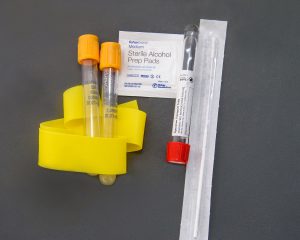
The COMPASS study will conduct a blood test and nasal swab for each community participant.
Once they find a potential participant, researchers will explain the study, get permission from each person and complete a questionnaire.
They’ll collect two samples on-site: a mid-nasal swab (inserted less than an inch into the nostril) to test for the virus and a blood sample to test for antibodies. The nasal swab can be self-administered, or a nurse can take the swab. A phlebotomist will collect the blood sample. Participants will be told how to obtain their nasal swab test results; the blood test for antibodies will not be returned.
Goals of the Study
Researchers hope to determine several things: the number of people who have been infected with SARS-CoV-2, the association of demographics and risk factors tied to COVID-19, public health responses to the pandemic in the community and racial and ethnic health disparities linked to testing, vaccination and other public health resources.
The data will help identify the groups most impacted by the pandemic and how they were affected. This information can help guide vaccine priorities, develop assistance programs to address the most critical problems and develop public health measures to mitigate the pandemic’s damage.
Ho and Marques want the public to know that their participation is critical for researchers to better understand how COVID-19 has impacted Pittsburgh-area communities.



